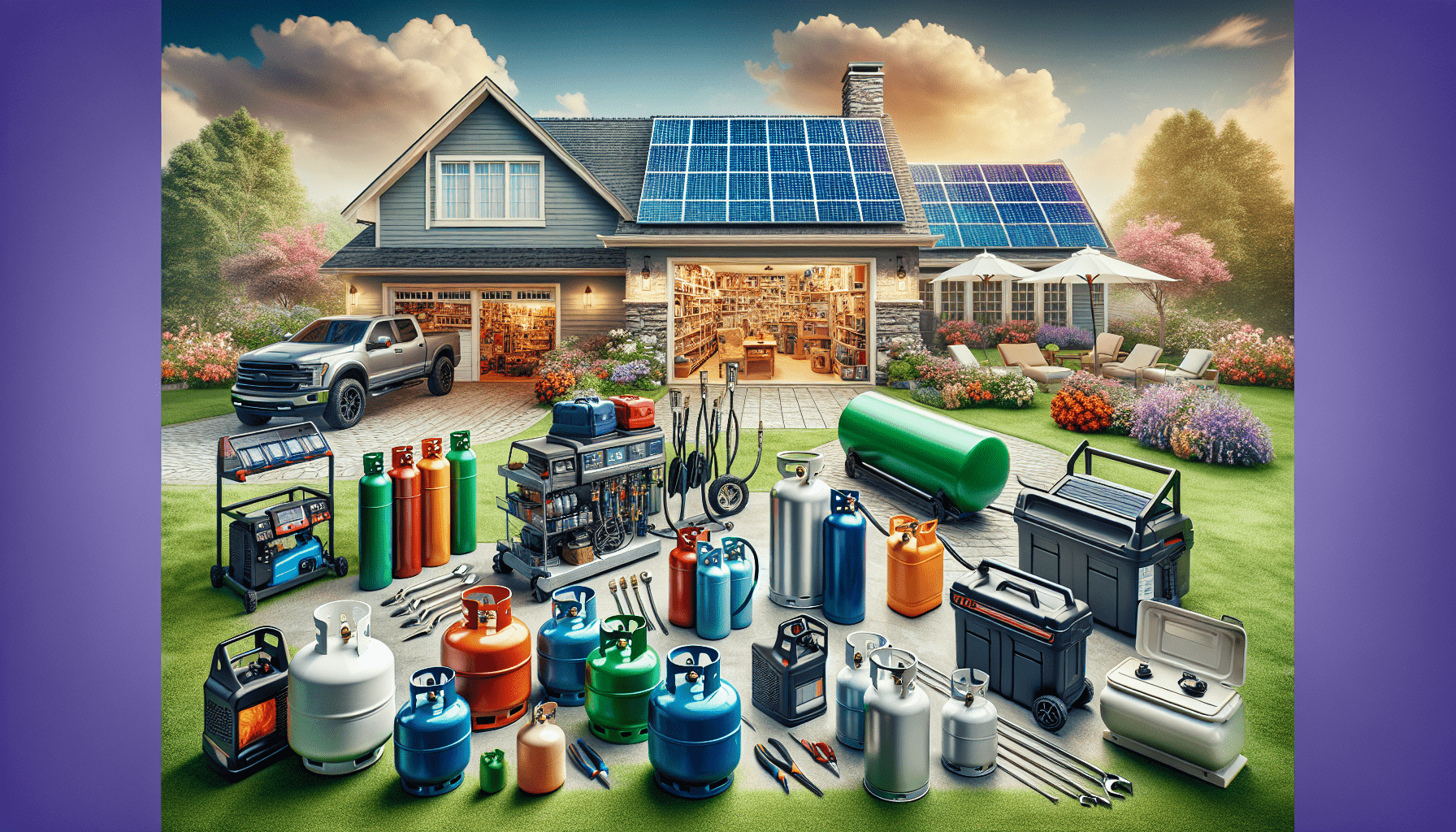In today’s unpredictable world, having a reliable home power backup can offer peace of mind, ensuring that you never face the inconvenience of unexpected outages. In the article “What Types Of Fuel Do Home Power Backups Use?” you’ll discover the variety of fuel options available for these essential systems. From the convenience of natural gas to the renewability of solar energy, understanding your choices can help you make an informed decision that best suits your needs and environment. Whether you’re looking to safeguard your home with propane, diesel, or even cutting-edge hydrogen solutions, you’ll find valuable insights to keep your household powered up and running smoothly. Have you ever wondered what types of fuel your home power backup could use?
You’re in the right place! Having a reliable home power backup system is becoming less of a luxury and more of a necessity, primarily due to unpredictable weather, natural disasters, or even power grid failures. But with so many options available, it’s crucial to understand the different types of fuel that these systems can use. This will help you make an informed decision based on your specific needs and circumstances.
Why Does The Fuel Type Matter?
The type of fuel your home power backup system uses matters for several reasons. The cost, availability, environmental impact, and even the ease of storage can vary significantly between different fuels. By understanding these differences, you’ll be better prepared to choose a system that fits both your budget and your lifestyle.
Cost Efficiency
Some fuels are more cost-effective than others. For instance, natural gas may be cheaper than diesel, but it may also require a connection to a municipal supply, which could cost more to install.
Availability and Storage
Certain fuels are more readily available in specific regions. For example, propane might be more accessible in rural areas, while natural gas is more common in urban settings. Additionally, how and where you can store the fuel will play a critical role in your decision.
Environmental Impact
Some fuels are more eco-friendly than others. Solar-powered systems, for example, don’t emit any pollutants, making them a great choice if you’re environmentally conscious.
Ease of Use
Some fuels require more maintenance and technical know-how to handle. Understanding this aspect will save you time and effort in the long run.
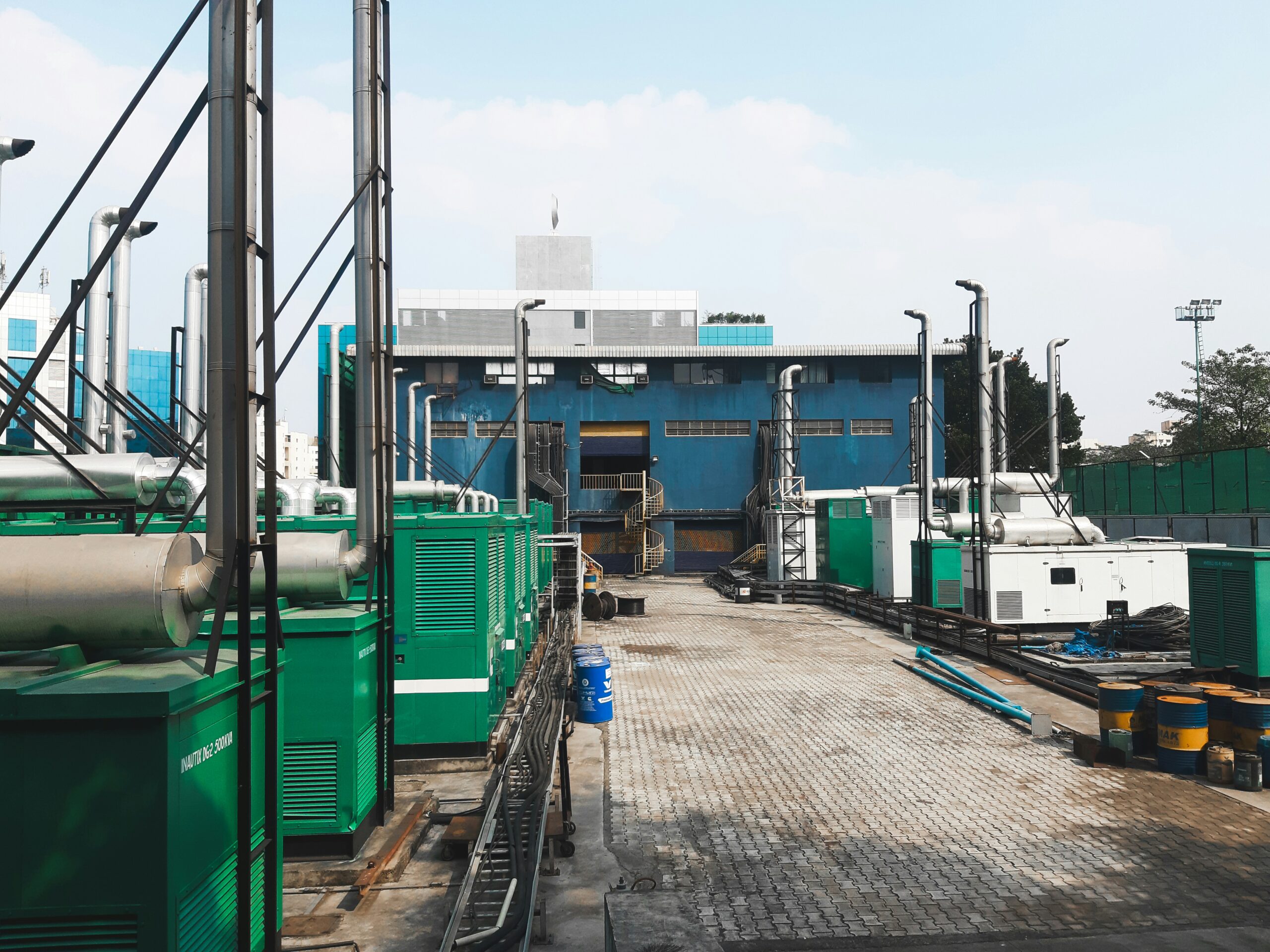
Types of Fuels for Home Power Backups
Let’s dive deep into the various types of fuels that can be used for home power backups. We’ll discuss their advantages, disadvantages, costs, and other important details to help you get a clearer picture.
Diesel
Diesel is one of the most popular choices for home power backup solutions. The reasons are aplenty – it’s reliable, efficient, and widely available.
Advantages
- Reliability: Diesel generators are well-known for their durability and long-lasting performance.
- Efficiency: Diesel engines are generally more fuel-efficient than gasoline engines.
- Power Output: If you have a high-energy demand, diesel can deliver the needed power more efficiently.
Disadvantages
- Cost: Diesel fuel can be more expensive than other options.
- Storage: You may need a large storage tank, and diesel fuel can degrade over time.
- Environmental Impact: Diesel generators emit pollutants, making them less eco-friendly.
Cost
Diesel fuel prices can fluctuate, but it generally costs more than gasoline and natural gas. It’s vital to factor in these costs over the lifetime of the generator.
Propane
Propane is another popular option for home power backup systems. It offers a good balance between cost and efficiency.
Advantages
- Clean Burning: Propane burns cleaner than diesel or gasoline, resulting in fewer emissions.
- Long Shelf Life: Propane doesn’t degrade over time, making it ideal for long-term storage.
- Availability: It’s readily available in both urban and rural areas.
Disadvantages
- Lower Energy Density: Propane generally has a lower energy density compared to diesel, meaning you’ll need more fuel to produce the same amount of energy.
- Upfront Costs: The initial setup, including tanks and plumbing, can be expensive.
Cost
Propane is generally less expensive than diesel but can be more costly than natural gas. Its cost-effectiveness often depends on regional factors and your specific usage requirements.
Natural Gas
Natural gas is often considered the most convenient and environmentally friendly option, especially in urban settings.
Advantages
- Convenience: If your home already has a natural gas connection, integrating a backup generator is straightforward.
- Eco-Friendly: Natural gas burns cleaner than diesel and gasoline.
- Cost-Effective: Often more affordable than diesel and sometimes even propane.
Disadvantages
- Initial Setup: Setting up a natural gas generator can be costly if your home isn’t already connected to a gas line.
- Availability: Natural gas may not be available in more remote or rural locations.
- Less Portable: Natural gas generators are usually not portable, making them a less viable option if you move frequently.
Cost
Natural gas tends to be cheaper than diesel and propane, making it a cost-effective option for long-term use. However, installation and infrastructure costs can add up.
Gasoline
Gasoline-powered generators are popular for their initial affordability and ease of use. However, they are usually better suited for short-term or temporary needs.
Advantages
- Availability: Gasoline is widely available and can be purchased at any gas station.
- Initial Cost: Gasoline-powered generators are usually less expensive upfront.
- Portable: These generators are typically more portable, making them suitable for multiple applications.
Disadvantages
- Fuel Stability: Gasoline degrades over time and requires stabilizers if stored for long periods.
- Environmental Impact: Gasoline combustion releases harmful pollutants.
- Less Efficient: Gasoline engines are generally less fuel-efficient compared to diesel engines.
Cost
Gasoline is generally less expensive per gallon than diesel but more costly than propane and natural gas. The costs can add up significantly if you’re relying on gasoline for long-term power needs.
Solar Power
Solar energy is gaining traction as a sustainable and eco-friendly backup power solution. However, it has its own set of advantages and limitations.
Advantages
- Eco-Friendly: Solar power produces no emissions, making it the greenest option.
- Renewable: As long as the sun is shining, you have a nearly inexhaustible power source.
- Low Operating Costs: Once installed, solar panels require minimal maintenance and have no fuel costs.
Disadvantages
- Initial Cost: The upfront cost for solar panels and battery storage can be quite high.
- Weather Dependent: Solar power is less reliable in areas with limited sunlight.
- Energy Storage: Solar systems often require battery storage to ensure power availability during the night or cloudy days, adding to the cost and complexity.
Cost
While the initial investment can be steep, solar power systems can save money in the long run, especially if you consider tax credits and incentives. Additionally, low operating costs make it a good long-term investment.
Battery Storage
Finally, battery storage systems are often used in conjunction with renewable sources such as solar power. They store energy for use when the power is out or during peak demand times.
Advantages
- Silent Operation: Unlike traditional generators, battery storage systems operate silently.
- No Emissions: Battery systems produce zero emissions, making them eco-friendly.
- Scalability: You can easily add more batteries to increase storage capacity.
Disadvantages
- Initial Cost: High initial cost for the system and installation.
- Limited Storage: Batteries have limited storage capacity and may not be sufficient for extended outages.
- Lifespan: Batteries degrade over time and will need to be replaced, adding to the long-term costs.
Cost
The cost for battery storage systems varies widely depending on the capacity and type of batteries used. Lithium-ion batteries, for instance, are more expensive but offer longer life and better efficiency.
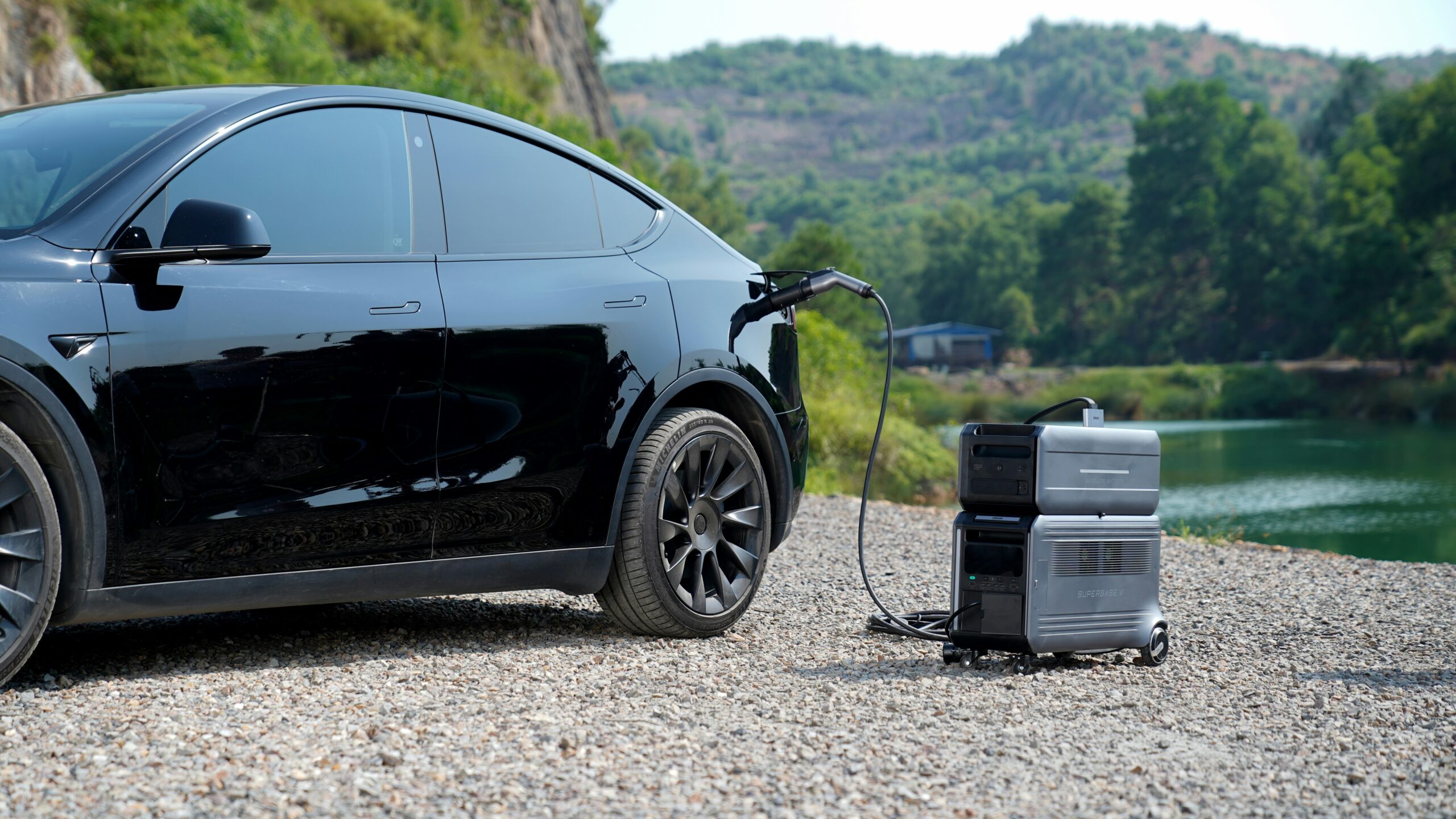
Comparative Analysis
To make it easier for you to grasp the differences at a glance, here’s a comparative table summarizing the key aspects of each fuel type.
| Fuel Type | Cost | Availability | Environmental Impact | Ease of Use | Storage Needs |
|---|---|---|---|---|---|
| Diesel | High | Widely Available | High Pollutants | Moderate | High |
| Propane | Medium | Widely Available | Low Emissions | Moderate | Moderate |
| Natural Gas | Low | Urban Areas | Low Emissions | Easy | Minimal |
| Gasoline | Medium | Widely Available | High Pollutants | Easy | Minimal |
| Solar Power | High | Weather Dependent | Zero Emissions | Complex | None (needs battery) |
| Battery Storage | High | N/A | Zero Emissions | Easy | High (for batteries) |
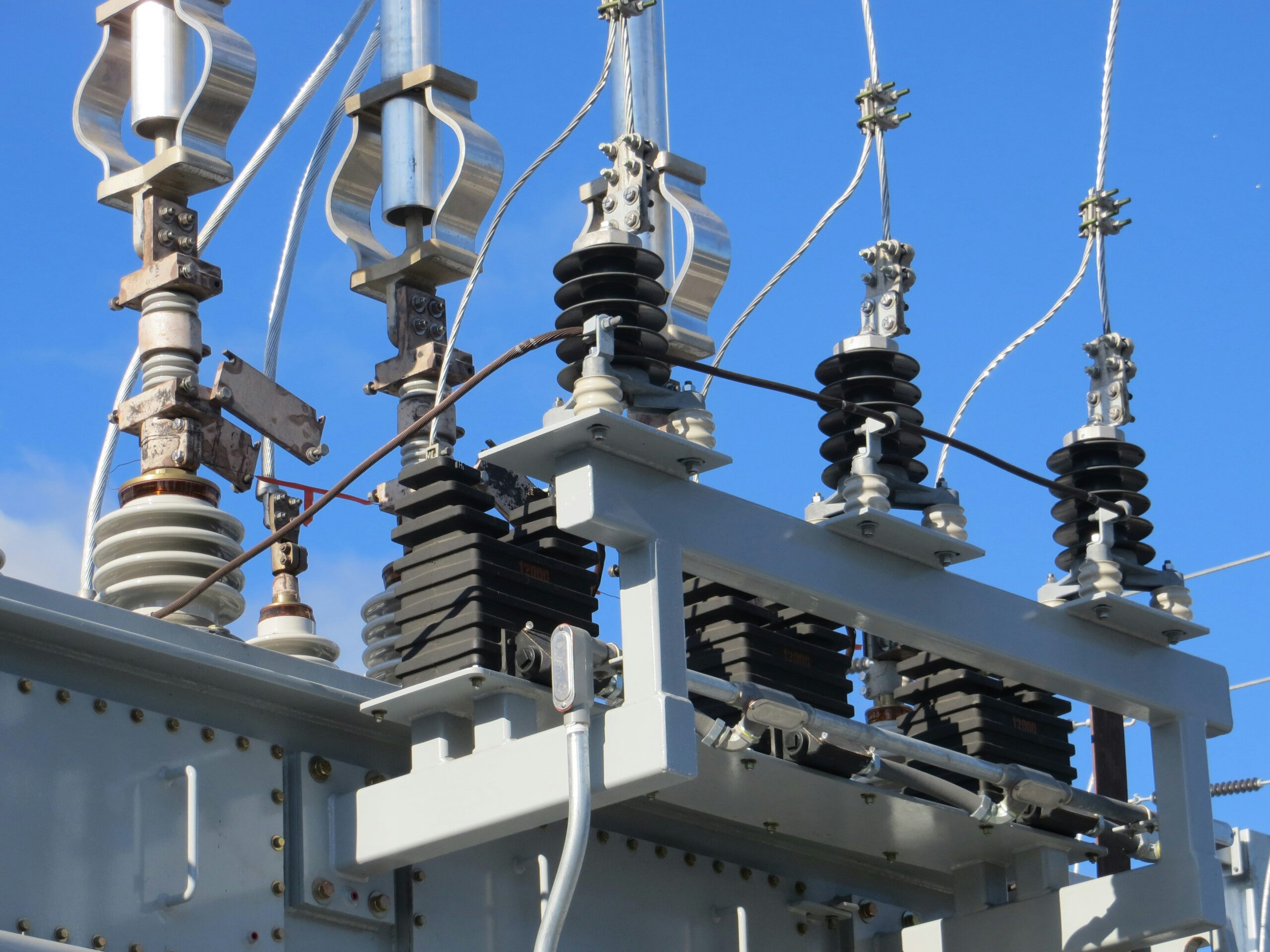
Practical Considerations
Selecting a home power backup system is more than just choosing a fuel type. You should also consider other practical aspects like runtime, power output, and maintenance requirements.
Runtime
The runtime of a generator is critical, especially if you live in an area prone to long power outages. Diesel and propane generators generally offer longer runtimes compared to gasoline generators. Solar power, supplemented with battery storage, can provide a more sustainable option but is highly dependent on weather conditions.
Power Output
Ensure that the generator you choose can handle the power load of your home. Diesel generators typically provide higher power output compared to other fuel types, making them suitable for larger homes or those with high electricity demands.
Maintenance
Different fuel types come with varying maintenance needs. Diesel generators require regular oil changes and filter replacements, while solar power systems need minimal maintenance once installed. Be prepared to invest time and resources into maintaining your system to ensure its longevity and reliability.
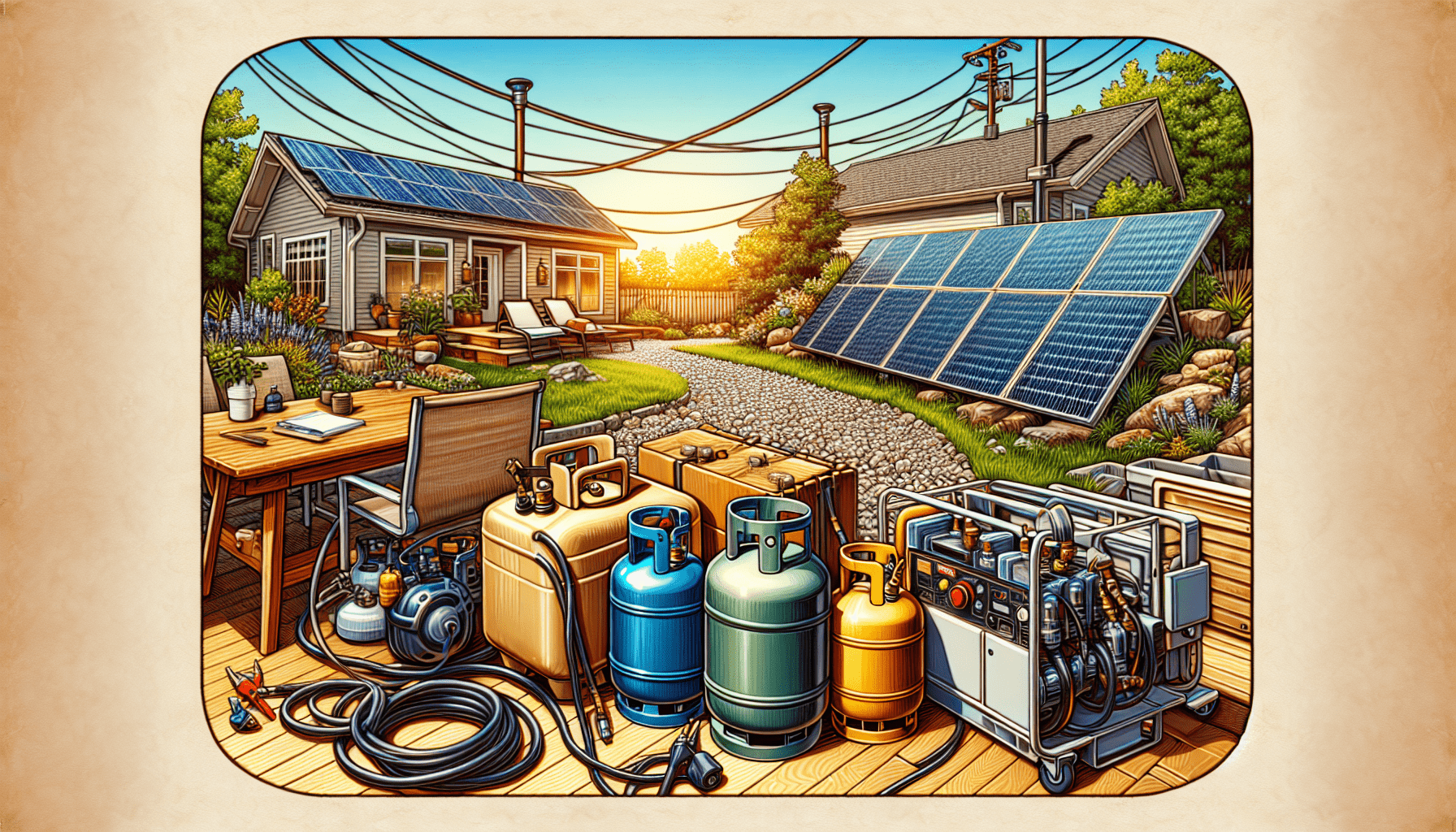
Final Thoughts
Choosing the right fuel for your home power backup system is a crucial decision that can greatly impact your comfort, safety, and finances during power outages. By understanding the advantages and disadvantages of each fuel type, you’ll be well-equipped to make the best choice for your specific needs.
Remember, there’s no one-size-fits-all solution. What works best for you will depend on factors like your home’s location, energy needs, budget, and environmental concerns. Take the time to assess these factors thoroughly, and you’ll be far better prepared when the next outage hits.
Feel free to reach out if you have any questions or need further guidance. We’re here to help you make the most informed decision for your home and family.
